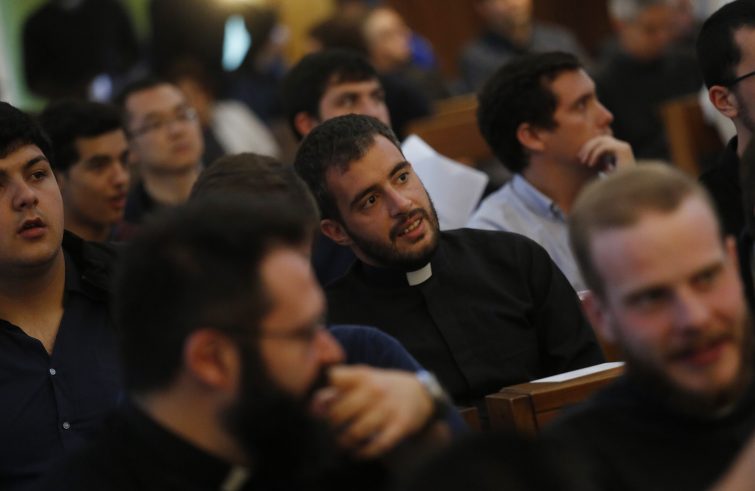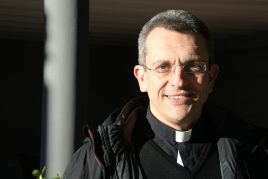
“The need to bring seminarians closer to real life was brought to the fore by seminary rectors, formators and the Synodal Way. Moreover, the Church must be aware of the need for the formation of her own ministers. If this does not happen, there is something wrong with the Church. Without vocations there is no Church.” While waiting for the Dicastery for the Clergy to confirm the “Ratio Fundamentalis Sacerdotalis” for seminaries in Italy, Father Michele Gianola, Undersecretary of the Italian Bishops’ Conference (CEI), and Director of the CEI National Office for the Pastoral Care of Vocations, shares his thoughts on the formation of new priests.
Why should the Ratio be renewed?
The Church is concerned with the formation of her future priests. The Ratio takes into account the whole process of formation, beginning with the pastoral care of vocations and ending with entry into the seminary and lifelong formation.
The seminary is not a producer of ready-made priests.
It is the opposite of buying a new car. When you drive it out of the showroom, it is new, and over time it will need to be repaired. The opposite happens in the seminary.
What qualities are needed to enter the priesthood?
In the rite of ordination, the bishop asks the rector of the seminary: “Are you sure he deserves it?” But how can you tell if a man is worthy of the ministry he is about to receive? This can be understood by examining the term’s etymology. In fact, the word “deserving” means “to serve zealously” and this gives meaning to everything. The seminary is a time of discernment, a time to see if a candidate has what it takes to be a priest. After that, a whole life will be dedicated to becoming a shepherd who has the heart of Christ in him.
Who are the young men entering the seminary today?
They are more fragile and broken than in the past, but that does not mean they are better or worse. Those who knock on the door of the seminary have a wounded past. In terms of vocation, they are in need of an anchorage, not for the containment but for the channelling of the energy they have within.
There is a danger that they will become fragmented in too many areas, that they will fall into a quagmire. An anchorage, on the other hand, allows the vocation to mature. Young people have so much energy: thirty years ago they entered the seminary through ordinary channels, but nowadays they are not content with a superficial faith, they yearn to be rooted in the Gospel.
This is the beautiful characteristic of this young generation. We saw it in Lisbon: during Eucharistic adoration there was complete silence. There were one and a half million young people praying.
Returning to the roots is a serious commitment….
Some are disoriented, but they are thirsting for meaning. The numbers are not encouraging, but this is a special time for the gift of vocations. Not to become priests, but to understand one’s vocation. To discover the joy of life. How many young people are following Sadhguru? That’s the elephant in the room that should be a wake-up call for us. Young people yearn for spirituality.
Is there still room for the minor seminary?
The Bishops are in favour of the continuation of the vocational accompaniment of young people in a variety of forms.
Compared to the 2006 Ratio, the minor seminary in its traditional form has lost its importance, but it has become more relevant as an alternative form of accompaniment for teenagers.
The minor seminary and other forms have been replaced by youth and vocation communities.
Does the Ratio respond to young people’s need for shared forms of community life?
We are living in a time when people want to come together and rediscover themselves, to experience fraternal life, to live together, to be at home. The Toniolo Institute has published a text, “Oases of Fraternity”, featuring a list of experiences of community life among young people in Italy. This opportunity is now also available to teenagers. Who knows, it could become an insight into the experience of major seminaries.
The community plays a fundamental role in the formation of priests…
Formation involves a variety of actors, since it is no longer entrusted solely to seminary formators. This is a remarkable breakthrough.
The Christian community becomes the object of discernment for the future priest.
The future priest is invited to connect with the parish and the ecclesial reality from which elements for discernment can be drawn. In some cases, especially for diocesan clergy, there is a risk of a disconnection between the “before” and the “after”. The formation of priests is a pastoral task for the Church.











